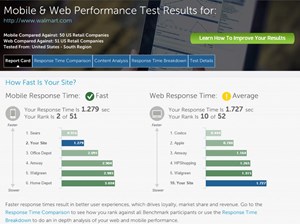Keynote, now a part of Dynatrace, announced the integration of Keynote Mobile Testing with Appium, an open source framework designed to help automate the testing of native and web iOS and Android mobile applications.
The new integration will allow organizations to improve the quality of apps by enabling efficient collaboration between quality assurance (QA) practitioners doing end-to-end testing and developers automating unit tests.
Developers and QA professionals are under increasing pressure to support the rapid introduction of new mobile app features. To efficiently address this challenge, developers are looking for ways to leverage tools and languages they are already familiar with to automate unit tests. At the same time, QA professionals, who test the integrity of the app before publishing, need a way to streamline the testing process to accelerate time to market.
By integrating Keynote Mobile Testing with Appium, developers and QA professionals can pair a high-fidelity interactive mobile testing environment with a common automated scripting test framework and run tests across real devices to accelerate the mobile application lifecycle and improve quality.
“In the age of mobile, the drive towards innovative and continuously improved user applications is at the core of any successful mobile strategy,” said Howard Wilson, EVP of Commercial Operations, Keynote. “With the Appium integration, we’re working to close the gap between quality assurance and developers through an open approach that can be utilized throughout the organization, ultimately shortening the application lifecycle with no compromise to quality.”
Available via a simple plug-in, the scripting framework allows users to quickly build and run tests throughout all stages of development, allowing digital innovators to benefit from:
- Accelerated time to market: By allowing development teams to use the programming language of their choice, share test assets and reproduce results more consistently, organizations can ensure new features are published quicker and with greater simplicity.
- Comprehensive support: The Keynote Mobile Testing environment combined with the Appium framework allows users to extend unit testing of native, hybrid and mobile web applications to real devices for sophisticated end-to-end testing on a platform that also supports QA needs for manual and automated testing.
- Device compatibility: Organizations can run automated scripting tests across mobile browsers and operating systems on actual smartphones, tablets and wearables deployed privately or in the Keynote Mobile Testing Cloud.
- Improved collaboration: With the ability to leverage a common framework, QA can work more closely and efficiently with developer teams, removing silos and improving the quality and experience of mobile applications.
The new integration is available today for users of Keynote Mobile Testing Enterprise.
The Latest
An overwhelming majority of IT leaders (95%) believe the upcoming wave of AI-powered digital transformation is set to be the most impactful and intensive seen thus far, according to The Science of Productivity: AI, Adoption, And Employee Experience, a new report from Nexthink ...
Overall outage frequency and the general level of reported severity continue to decline, according to the Outage Analysis 2025 from Uptime Institute. However, cyber security incidents are on the rise and often have severe, lasting impacts ...
In March, New Relic published the State of Observability for Media and Entertainment Report to share insights, data, and analysis into the adoption and business value of observability across the media and entertainment industry. Here are six key takeaways from the report ...
Regardless of their scale, business decisions often take time, effort, and a lot of back-and-forth discussion to reach any sort of actionable conclusion ... Any means of streamlining this process and getting from complex problems to optimal solutions more efficiently and reliably is key. How can organizations optimize their decision-making to save time and reduce excess effort from those involved? ...
As enterprises accelerate their cloud adoption strategies, CIOs are routinely exceeding their cloud budgets — a concern that's about to face additional pressure from an unexpected direction: uncertainty over semiconductor tariffs. The CIO Cloud Trends Survey & Report from Azul reveals the extent continued cloud investment despite cost overruns, and how organizations are attempting to bring spending under control ...

According to Auvik's 2025 IT Trends Report, 60% of IT professionals feel at least moderately burned out on the job, with 43% stating that their workload is contributing to work stress. At the same time, many IT professionals are naming AI and machine learning as key areas they'd most like to upskill ...
Businesses that face downtime or outages risk financial and reputational damage, as well as reducing partner, shareholder, and customer trust. One of the major challenges that enterprises face is implementing a robust business continuity plan. What's the solution? The answer may lie in disaster recovery tactics such as truly immutable storage and regular disaster recovery testing ...
IT spending is expected to jump nearly 10% in 2025, and organizations are now facing pressure to manage costs without slowing down critical functions like observability. To meet the challenge, leaders are turning to smarter, more cost effective business strategies. Enter stage right: OpenTelemetry, the missing piece of the puzzle that is no longer just an option but rather a strategic advantage ...
Amidst the threat of cyberhacks and data breaches, companies install several security measures to keep their business safely afloat. These measures aim to protect businesses, employees, and crucial data. Yet, employees perceive them as burdensome. Frustrated with complex logins, slow access, and constant security checks, workers decide to completely bypass all security set-ups ...

In MEAN TIME TO INSIGHT Episode 13, Shamus McGillicuddy, VP of Research, Network Infrastructure and Operations, at EMA discusses hybrid multi-cloud networking strategy ...

